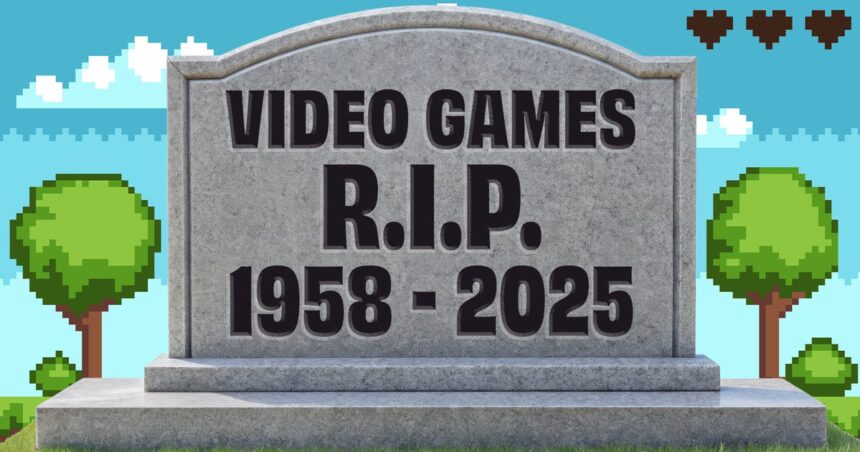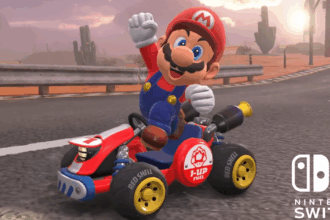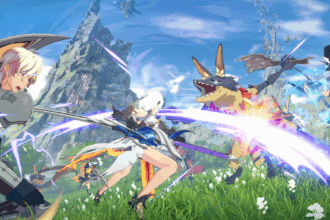Recently, I encountered a thought-provoking statement that resonated with me: predicting failure often garners less backlash than advocating optimism, mainly because fewer people mind when you’re wrong about doom.
While I’m not certain this is entirely valid, it’s a sentiment swirling in my mind as I pen this article. The video game industry, particularly the large-scale Western developer-publishers, seems to teeter on the brink. With the much-anticipated GTA 6 pushed back to mid-2026, it feels as if we might have witnessed the death knell of the industry as we’ve known it; it just hasn’t accepted its fate yet.
Let’s unpack this bold assertion for a moment. Historically, the gaming landscape has included substantial players like Ubisoft, EA, and 2K, releasing blockbuster titles annually. Franchises such as Call of Duty and FIFA/FC enjoyed consistent yearly rollouts, while others like Assassin’s Creed and Ghost Recon transformed their series into a rotating showcase. Major console manufacturers—Sony, Microsoft, and Nintendo—followed suit, peppered with an array of smaller releases.
On the other side, indie publishers like Devolver Digital and Annapurna Interactive continuously contributed a slew of mid-sized titles. Japan’s development scene also provided a wealth of creativity and innovation, supplemented by a deluge of mobile games that captured billions of dollars from on-the-go gamers. We also witnessed a fluctuation in console pricing, typically decreasing over time. Furthermore, live-service games—from World of Warcraft to Fortnite—emerged as cultural phenomena, tapping into a well of dedicated audiences.
However, this thriving ecosystem is morphing rapidly, and acknowledging it can feel unsettling for industry veterans and players alike. Indeed, the familiar structure of the gaming industry is shifting in ways that are difficult to ignore.
Recent events have offered a stark reminder of this reality. EA has shed over 300 jobs and canceled yet another project tied to the troubled Titanfall franchise, alongside putting the beloved WRC series on hold. Meanwhile, Fandom, which operates the Giant Bomb wiki, has seen significant staff turnover due to misguided ownership decisions, and Polygon has undergone a harsh shake-up post-sale, diminishing its once-vibrant presence. These developments are painful reminders of the relentless pursuit of growth, often at a high human cost.
While it’s easy to dismiss these layoffs as superficial errors driven by corporate greed, there’s a deeper trend at play. Former game journalist Alanah Pierce recently shed light on how the industry has transitioned to a ‘mature’ phase, where audience growth has plateaued.
This stagnation is compounded by two pressing factors: investors are diverting their capital into other fields—often speculative areas like AI—and gamers are spending less time playing and more time immersed in quick, addictive social media videos.
The implications of these shifts are significant. Social media, particularly platforms like TikTok, not only competes for gaming time but also siphons viewers away from traditional gaming content on Twitch and YouTube, both of which have faced significant cutbacks in their workforces recently. This mirrors issues pervasive across media industries, where many professionals are finding themselves in precarious job situations.
Game production has felt the strain as well; mid-tier developers are struggling to secure funding, as publishers shift priorities from single larger investments to numerous smaller ones. The economics of creating triple-A titles are becoming increasingly unsustainable, a trend exacerbated by failed ventures into live-service models. Fads such as blockchain, the metaverse, and NFTs have arrived and faded, with user-generated content last touted as the industry’s savior—yet even that path remains fraught.
This brings us to GTA 6, positioned alongside the anticipated Switch 2 as a beacon of hope for the gaming world this year. Many, including myself, have touted the potential of GTA’s monumental popularity as a force that could rejuvenate interest in gaming, especially after a prolonged period of isolation during COVID-19.
The concern, however, lies in the reality that TikTok has become the trendsetter, creating a world where the allure of endless video consumption competes with the interactive experiences that games provide. Will the excitement around GTA 6 actually outshine the myriad platforms where users can consume snippets about the game in real-time?
For the average gamer, the immediate ramifications may not be severe. We are in a phase where the impacts of ongoing shifts are still materializing. Developers had already warned of delays due to COVID-19 as early as February 2020, and the repercussions might linger well into 2024. Many games are in limbo, and it often makes more sense to finish these productions than to shelve them altogether. Thus, the next few years may continue to reflect our current gaming landscape, marked by major releases juxtaposed with corporate reorganization as legacy entities attempt to adapt.
Yet, change is on the horizon. The landscape of triple-A games is likely to shift, with an expectation of fewer titles that follow the traditional model. The few that remain may either emerge from established franchises like GTA—which took 12 years to develop—or from agile independent studios such as Larian, which can break even on a smaller scale. Alternatively, we may see an uptick in remasters and ports as companies seek low-risk opportunities.
If you lean toward pessimism, it’s easy to believe this marks a desolate end: a permanent loss of talented creators, as developers shuffle into other industries, leaving us with significantly less to enjoy.
Yet, the optimist in me holds onto a more hopeful vision. Perhaps we will see a surge of new studios forming from disheartened or displaced developers, pushing innovations forward despite financial constraints. This could pave the way for a renaissance in creativity, drawing inspiration from studios like Larian and indie success stories such as Hello Games and Supergiant. The industry giants might gradually learn from their experiences and turn their gaze toward the successes of companies like CD Projekt, Capcom, or Nintendo.
The independent sector, while inherently unstable, offers a beacon of hope—an opportunity for inspiration and experimentation. Projects like Blue Prince, Promise Mascot Agency, and Despelote exemplify the resilience found within smaller teams. Similar upheavals have transpired in music, film, and television, and despite the challenges, these art forms have persisted. The gaming industry may seem at a crossroads, but the spirit of creation and the joy of play are undying forces. Whatever the future holds, the essence of gaming will remain, and as one era fades, another will arise to ignite our passion once more.























